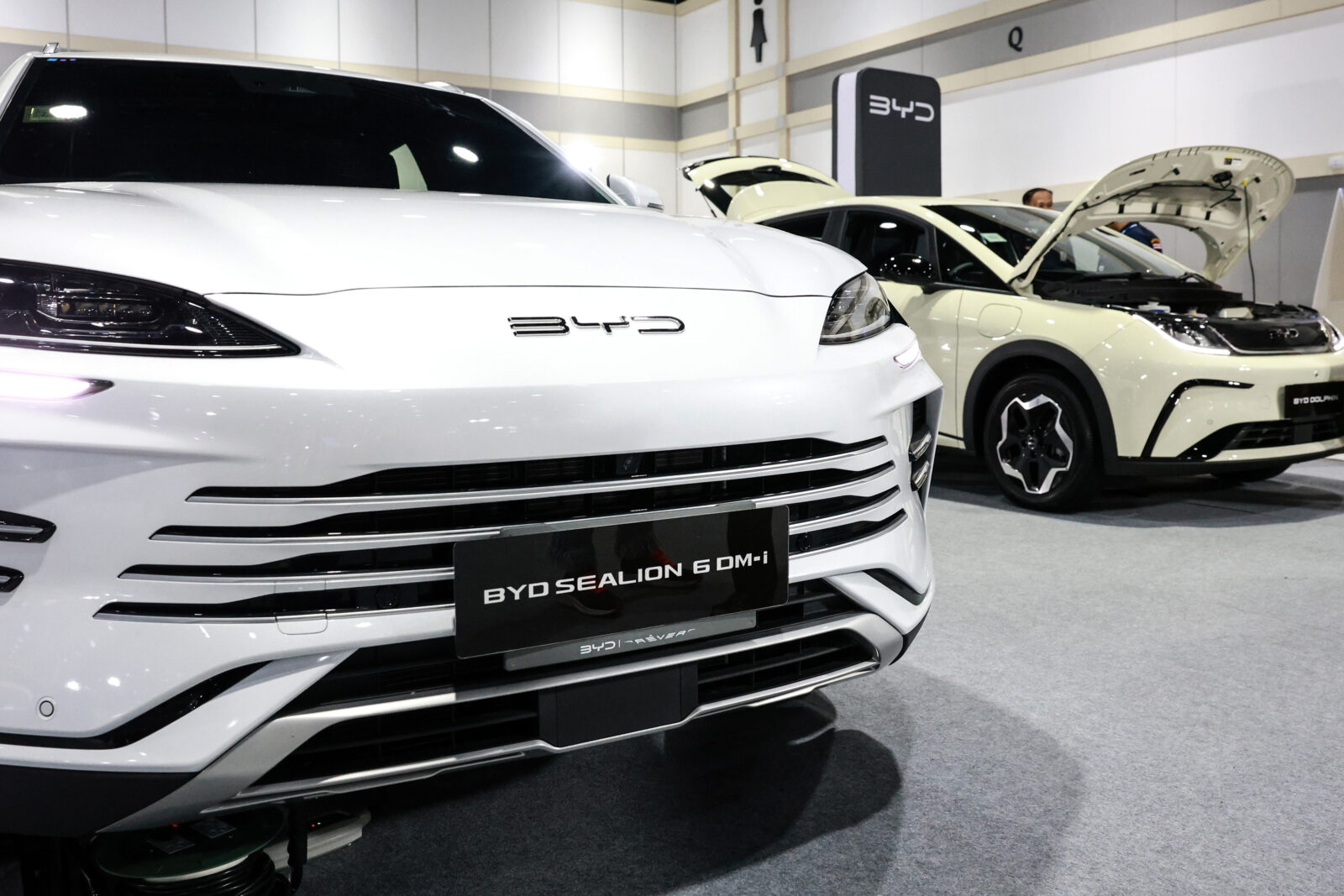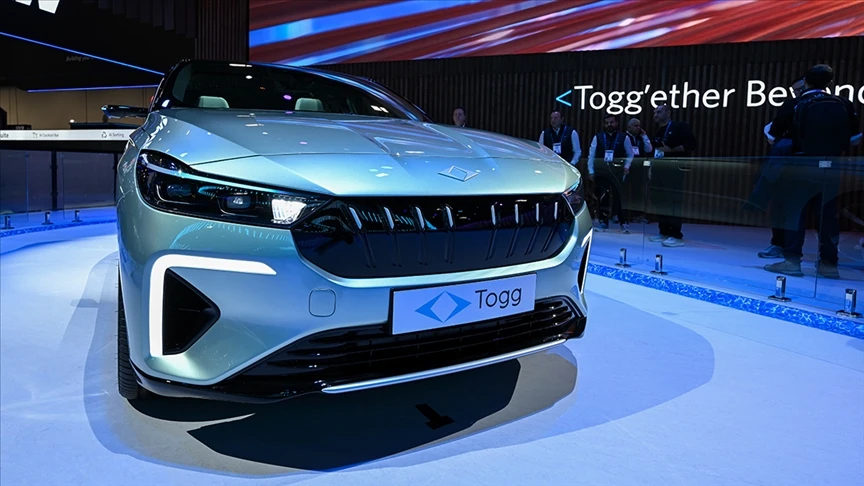EU measures may pose origin risks for Chinese EV firms in Türkiye, auto chief warns
 Chinese electric vehicle maker BYD's carrier, BYD CHANGZHOU, docked at Safiport Derince Port with hundreds of electric vehicles positioned nearby in Kocaeli, Türkiye, on April 6, 2025. (AA Photo)
Chinese electric vehicle maker BYD's carrier, BYD CHANGZHOU, docked at Safiport Derince Port with hundreds of electric vehicles positioned nearby in Kocaeli, Türkiye, on April 6, 2025. (AA Photo)
The European Union’s potential measures on Chinese electric vehicles (EVs) could trigger trade actions affecting third-country manufacturers in Türkiye, chairman of the Automotive Manufacturers’ Association Cengiz Eroldu warned Friday, urging firms planning to invest in the country to ensure Turkish origin to avoid restrictions.
The EU and China are exploring a possible deal to replace recently imposed tariffs on Chinese-made EVs with minimum price agreements, known as price undertakings. The EU had raised tariffs to as high as 45.3% last October—adding to the standard 10% import duty—with rates of 17% for BYD, 18.8% for Geely, and 35.3% for SAIC. The European Commission confirmed ongoing negotiations with China as an alternative to the current tariff regime on Thursday, Reuters reported.
To discourage companies engaging in unfair trade practices in third countries that benefit from preferential treatment in the EU market, specific rules of origin will be defined within trade defense instruments for the European automotive sector. The European Commission will launch an investigation if it obtains sufficient evidence that countervailing duties and other measures against electric vehicles imported from China are not effectively addressing unfair trade practices.
Speaking to Anadolu Agency on the matter, Eroldu pointed out that vehicles produced and exported from Türkiye to the EU are duty-free under the Customs Union, allowing them to be registered with the European Community (EC) Certificate of Origin.
“These enable Türkiye to become a potential production and export base for third-country manufacturers, and we can already see traces of this trend with recent investments of Chinese firms, but it is important to monitor the EU’s potential to develop various policies on rules of origin even if it may not directly impose tariffs,” he said.
In July, Chinese electric vehicle manufacturer BYD signed a deal with the Turkish government to invest over $1 billion in a production facility in Manisa, aiming to boost its expansion in the European market through exports from Türkiye. Another Chinese giant, Chery, has also been in talks to follow BYD’s lead, considering Samsun province as the center of its potential investment.

Eroldu noted that for the certificate of origin, some inspection practices and additional taxes or financial obligations may be imposed on certain products that are sourced from third countries. He said the EU may impose such policies, emphasizing that manufacturers planning to invest in Türkiye should establish a production system to ensure their products are of Turkish origin.
“It is necessary to use domestic parts and carry out essential manufacturing processes in Türkiye to strengthen our contribution to the supply chain; otherwise, the access of these productions to the EU market may become limited.
“As Türkiye, we see this as an important threshold to attract foreign investment and to increase the sustainability and the strategic contribution of future investments,” he said.
Turkish auto sector steps up alignment with EU green agenda
The EU is moving forward with its industrial action plan for the auto sector by establishing three large-scale cross-border test sites and regulatory testing zones, as well as increasing the readiness and commercialization of self-driving cars.
As part of its Horizon Europe research program, the EU will allocate €1 billion ($1.1 billion) to the auto sector between 2025 and 2027. These funds will target demand for zero-emission vehicles, the establishment of heavy-vehicle charging centers, and expanded financing for charging infrastructure. An additional $2 billion will support battery production and recycling efforts.
The EU also aims to secure access to critical minerals and broaden its market presence through free trade agreements and strategic partnerships.
Eroldu said the EU is planning to focus on accelerating tech innovation and providing flexibility in decarbonization while working toward ensuring the global competitiveness of the industry with both structural and financial measures.

He described the EU’s green transformation efforts as both a responsibility and an opportunity for the Turkish auto sector, not only as an environmental compliance issue but as a strategic transition.
“Our industry is producing hybrid, battery-electric, and internal combustion engine technologies together in flexible systems—this multi-technology approach will respond to the needs of the domestic Turkish market, but it will also enable us to export to countries with varying regulations, especially in Europe,” he said.
He added that it is important for the supply industry to keep up with the green transformation efforts to achieve its export potential and to ensure the sustainability of the auto ecosystem.



